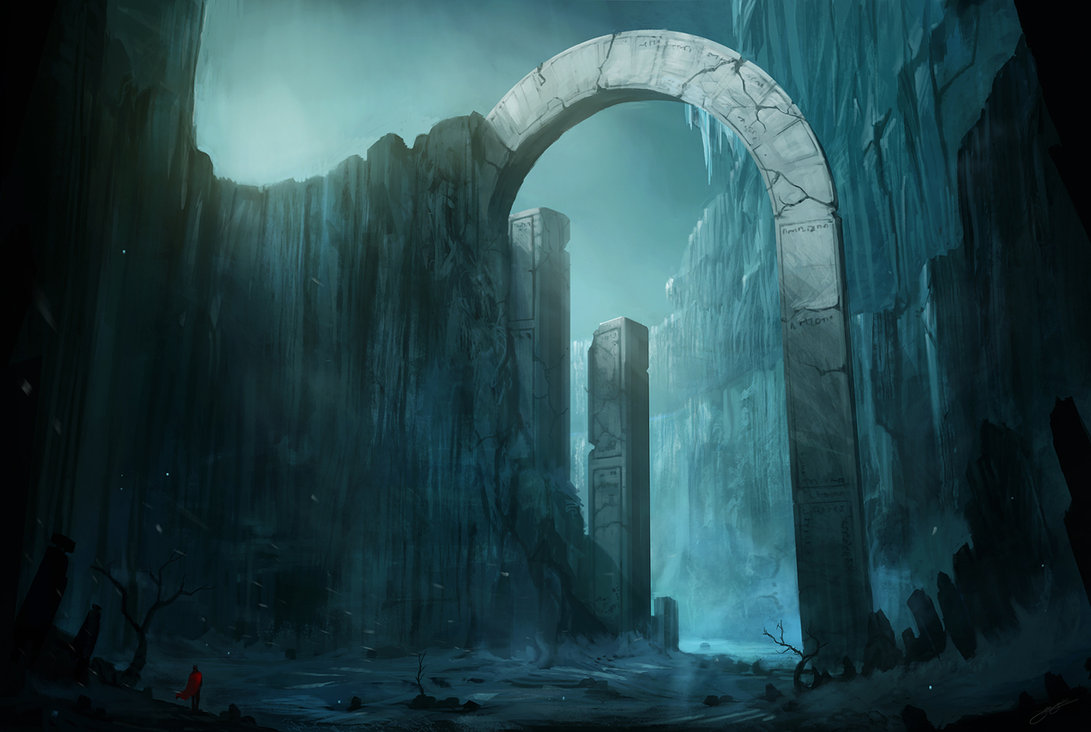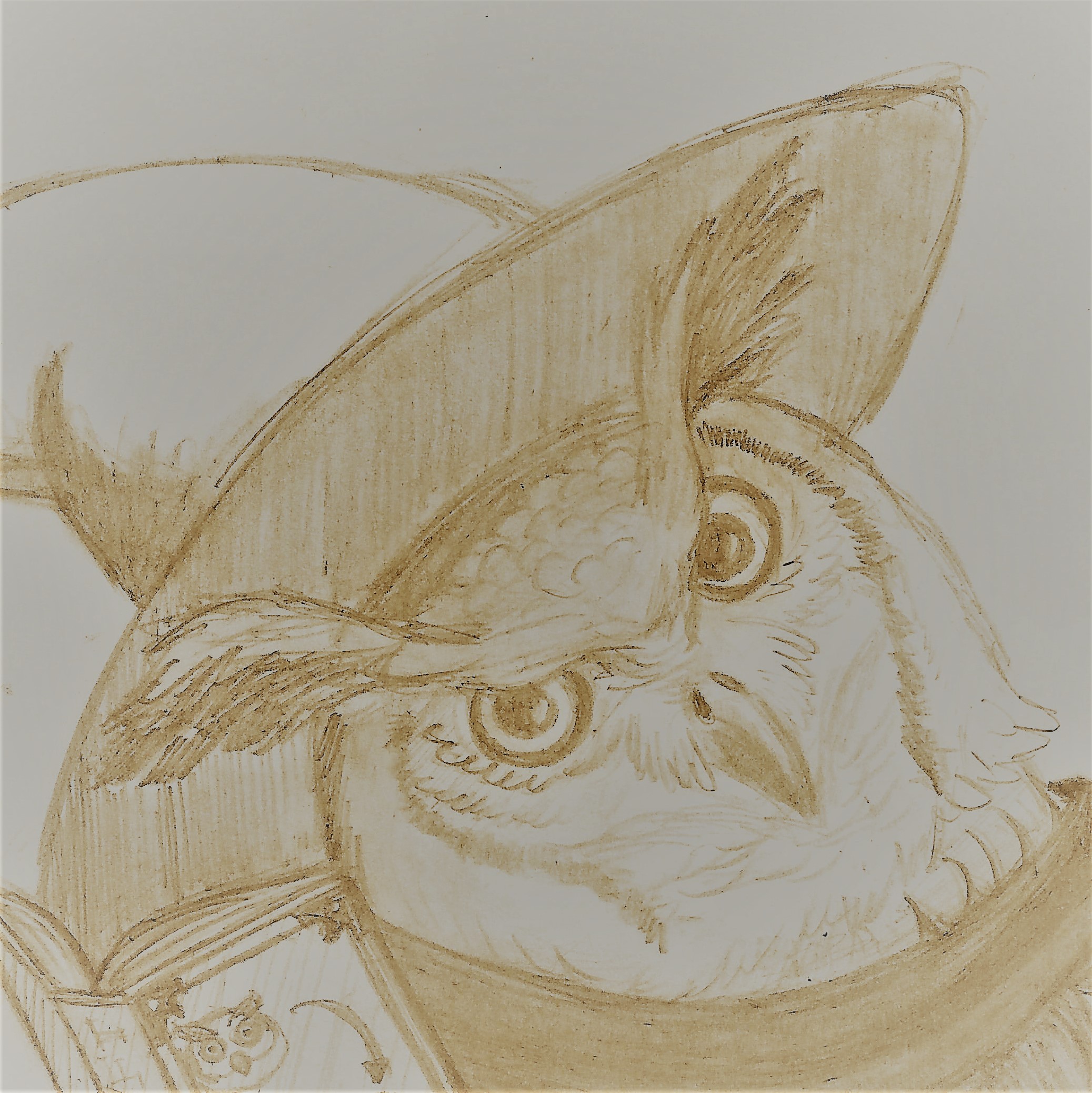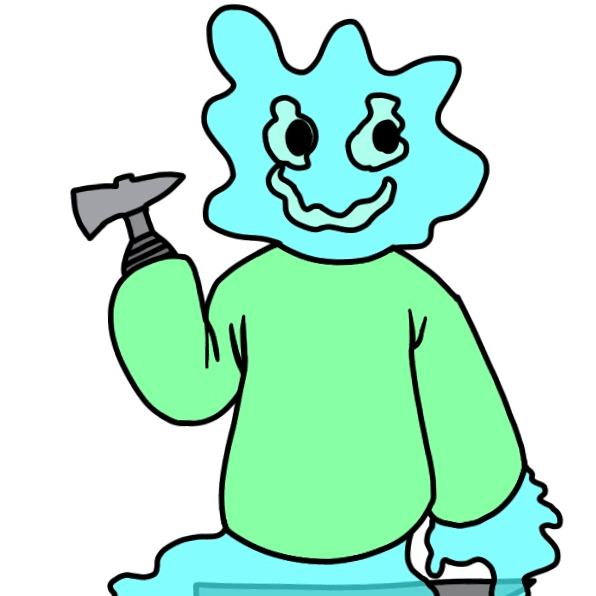What is worldbuilding and why to worldbuild?
You can create anything, but what should you create?
Worldbuilding is generally the creation of new worlds that are different from ours. It takes elements from both reality and our imagination and merges them together to form a completely new world.Well, that's it. Thanks for reading. Unless... unless you have some deeper interest (I mean, you are in a site called Worldanvil, right?). If that's the case, keep reading!—Alphonse Cypher, creator of Cadmeia.
Table of contents
What do you mean by building a WORLD?
Well, first we have to answer another question:What is a world?
If you said "a planet", you are partially right. That's because a world can be much more—or less—than a planet. I'm almost sure it's not an official concept, but, for me, we can call "world" any setting that serves as a background to a story (that can take the form of a book, a game, a RPG campaign, etc), including all the elements that compose it. Sometimes, what we call a "world" may also be called universe, likeA house with many bricks
So, rather than the shape, the world is what is inside it. You can think about nature, like the creatures that roam the land, the kinds of plants, climates, the geology, the seas an landmasses. You can also consider the civilized people, their culture, history, language, religions and settlements. You can even consider more abstract elements, like the "mood" of the world, chaos, peace, etc. We could say that a world is like a house (sometimes literally) and a house needs bricks, right? Our "bricks" are all the things that keep our world standing up, like:- Characters, such as heroes, villains, the wise masters or the cabbage sellers, which will interact with the world and other characters;
- Places (imagine a story without places!) in many scales, like cities, space stations, forests, planets and Grandma's house;
- Creatures like mounts, predators, preys, parasites, plants and all kinds of living things;
- Natural laws, like physics, climate, seasons and magic;
- Culture, for example the religions, traditions and languages of a people;
- The History of the world, telling us how and when things became what they are now.
For me, worldbuilding is crafting a believable world and setting to tell a story with; the world interacts with the story as well as the story interacting with the world. This story is hopefully a good one, and proper worldbuilding can and will bring it to life.—SsethTheBard, creator of Obscur.
Why the hell would someone build a world?
Well, because it's funny. Don't you think? ... Ok, ok.The main reason, I suppose
If you want a better reason, know that, in most cases, constructed words are used to tell stories, giving them a solid and credible background. (But I'm sure you already knew that.)Worldbuilding is one of the main elements of storytelling, besides character creation and narrative. It forms a foundation on which your story is set in and your characters interact with the world around them. It is especially important to look at the relationship of the world, story, and characters and how they react to each other.For example, the feats of an assassin of the old days who loved parkour; the drama of a teenager who had to lead a rebellion after winning a game; or the journey of two little guys to destroy a magical jewel while their friends distracted the enemies with battles. All these stories have their own worlds, with their own and exclusive features. Worldbuilding is tightly tied to narrative, and when you have a good worldbuilding, it's much easier to captivate your audience. A well crafted world has a big role keeping up the suspension of disbelief, making the audience "pretend seriously" that the story is real. For example, they will see that talking trees having a debate and, instead of saying "That's bullshit, trees can't talk", they'll be interested on their motivations and think "Hey, there trees really need to discuss that! It's important to save their forest!" Just to warn you, don't think that these stories always need to be so "exotic", with magic and pew pew and bang bang. Of course, you are probably looking for fantasy or science fiction here (at least I am), but even a realist story that happens in a real city, like London, Tokyo or Rio, needs some worldbuilding if it's fiction. (But let's be honest, magic and lasers make everything better.)—Alphonse Cypher, creator of Cadmeia.
Other but not less noble reasons
Not always a person wants just to tell a story when worldbuilding. Sometimes, it's a way to learn about new subjects (as I hope you will learn here in Tailoring Worlds), and it's a total valid way. Why not study ecology by creating your own ecosystem, or economy by managing trades between two planets? You know what they say, you only truly learn something when you practice it. There are also people who worldbuild as a hobby, to fulfill their lust for organization, to ease their stressed minds, have their own mini-reality where they can be gods, or just because they want. Believe you or not, creating things as a pastime can be very, very satisfying, and, as they say in r/worldbuilding, it's really taking escapism to the next level.Worldbuilding helps me stay a little childish—in the best meaning of the word. It keeps me creative. Also, I can create my very own world to get lost in, which gives me a place to be when the everyday life becomes a little boring.
Worldbuilding can create everything, but it's not everything
Some people say that worldbuilding is overrated. I strongly disagree with that, and the reasons are just above. BUT I admit that when worldbuilding becomes too excessive on details, specially the ones which are more useless info than flavor, it may be a problem. First, because it may distract you from the main point of your building, usually the story; you end up wasting so much time with irrelevant details that the main elements are left aside. Second, because it distracts your audience from your work. It's always nice to have some flavor, but reading two entire pages about why someone must sit with legs crossed when at the table during a dinner with a general of a determined culture, with comparisons to other military ranks and other cultures not even related to your story, is a bit too much. I may have exaggerated here, but remember that you don't need to create and detail everything in your world; part of the fun is letting your audience's thoughts fly and fill the gaps you leave. Of course, you can create as much as you want, but never forget the storytelling, the narrative, because it's also crucial. So, why am IWhat can I make with worldbuilding?
Well, everything!If someone can think of it, it can be done. I've seen scientifically accurate Flat Worlds, Dinosaur Noir stories, expansive Space Operas, and Superhero stories are all doable. Heck, even the backstory to a board game counts as a world, as is the case for Ironrise. You can create impossible landscapes, towns or cities from your imagination, a whole new culture and their traditions—or a whole bunch of them.
Add weird stuff
You can create places that look like Earth, but with a special touch. Maybe there are vampires roaming the streets or superheroes exploding skyscrapers. Or, maybe, magic schools for special kids or camps for demigod teenagers. And what about robotic dogs and time-travelling call-boxes? What is weird for us can be totally normal in another place!Travel in time
What about going to the past and create worlds that look like a plagued medieval Europe, the rum-filled times of pirates or the steamy beginning of the Industrial revolution? Oh, you prefer the future? What about flying cars (I still believe they'll be real one day) a brain connected to the internet or interplanetary travels? You world can be when you want it to be!Go far, far away
Desert planets with giant worms, worlds with colored volcano-like colossal aliens, futuristic cities where everything is automatic, countries devastated by nuclear wars, lost kingdoms under the ocean... building your own world, you are free to go where no person have ever gone.Get a new favorite place
Sometimes, we end up loving so much a world that we wished it was real. We wish to befriend our heroes, walk on distant planets, fight the giant monsters, drink polymorphic potions, or, why not, just sit down and drink some tea with a hobbit friend. As your world takes shape, it will become unique, and, with dedication and some affection, it will be for you—and maybe for many others—almost as a second home.With good worldbuilding one can immerse almost any reader into the story and make them feel like they know this world just as well as their own world.—SsethTheBard, creator of Obscur.
How do I start building my world?
Hey, that's the spirit!The process of building a world
I say in advance: creating a world is not easy, since there is so much to be done. Of course, the process itself may change depending on your world's purpose, its size, complexity, the media it will appear on and many other factors; but it's okay to say that, to create a rich, credible and captivating world, it's necessary research, creativity, humility, and A HUGE LOT of hard work. To manage that all, organization is vital, since you're probably going to scribble a ton of things. Happily, a terrific tool is just in front of you: WorldAnvil. Here anyone can make a wiki of their own worlds, which is simply amazing. And besides keeping work safe, here it's possible to check what other people are creating and get the feedback of the community, that is very active and very kind <3 And if you want a world to tell a story, it's also very good to have a direction, knowing what is essential and what can be left aside for that specific story (but you can always expand anything later if you wish). Directing the worldbuilding is up to the author, since every world is unique and needs different things. I'll give you some tips on this matter, but we won't go so deep yet.Just giving you a taste
We still have some things to talk about, but maybe you want to start right now. There is no general formula that will fit every world, but you can get a very good direction taking some elements in consideration:- The main goal of your creation: what are you gonna do with this world? Play RPG? Write a novel? Draw a comic?
- The size of your story: how big is your story? Is it a saga with many books? A one-shot comic? Something in between, not too big and not too small?
- The format of your story: how will your tale be told? Will it be a novel? A virtual game? Maybe many independent short stories?
- The size of your world: how big is your setting? Is it a house? A city? A planet? A galaxy?
- The content of your world: this may be a lot, but think about what is in your world. Places, creatures, magic... What does is it have of common, and what does it have of special?
- What you already have in hands: how much have you created for your world until now? Do you have an entire story? Maybe just a sketch? Or don't you have anything and just wanna see what happens?
I always suggest starting smaller. A character is always linked to a location, a profession, carries Items, is part of a species and ethnicity. I always suggest starting with 5 characters and simply answer their Name, Species (Ethnicity if important), Profession, and Place of Birth. Throw in two sentances of backstory and you've actually created a world at its very basic.
What comes now?
Beyond that elements, we could consider many other things, like the mood of your setting/story, the tastes of your audience, recurrent themes and so on. There are many possibilities and combinations, as well as many authors and styles, and that's why there is no worldbuilding formula that applies to everyone. But don't worry, my tailor, I'll help you. The next topic, Starting your World, is all about the first steps before creating your universe. We will speak about some elements of your world, different "levels" of worldbuilding, the most adequate methods to get what you want, and, in the end, a guide that you can check to start building your world. Just keep an eye here on Tailoring Worlds! I hope you liked the articleP.S.: I've been away for a ling time and for many reasons. I'm very sorry for letting you waiting, if it's the case. Now the blog is coming back and I hope we continue learning about Worldbuilding. Thanks a lot for reading!
TL;DR
- Worldbuilding is how we call the process of creating a world;
- The world, also called universe, is usually a setting that serves as background to a story;
- A world is not limited by size: it can be as small as a fairy house or as big as a multiverse;
- A world is composed by elements such as places, characters, items and nature;
- The main reason to build a world is the creation of an immersive experience for the audience, but one can also build as a hobby or to study some area of their interest;
- Too much worldbuilding can generate a lot of distractions and details that are just info, not flavor, so be careful;
- Worldbuilding's final product is only limited by imagination: the world can exist anywhere, whenever the author wants, and host any kind of fantastical elements;
- The process of creating a good world usually involves organization, a direction and a lot of hard work, be it writing, researching or just thinking;
- The direction of your work needs to take some factors in consideration, like the format and size of the story, size of the world, it's content and previously done work.
HOMEWORK
- See the questions at the end of the article? Grab your favorite piece of fiction, be it a novel, a game, a movie or anything else and try to answer those questions using it as a base. You don't need to be so deep or write another novel; this is just for you to get an idea of how it works and break a masterpiece into more tangible elements.
- Now, answer those questions again, now thinking about your world. Again, you don't need to be so deep or specific, but try to gather these basic aspects basing on your ideas. Keep these notes with you and see how they will change—or improve—with time.
Complementary Material
What is Worldbuilding? by GardulStories, a video with basically what I've said here and a little more. (By the way, for some reason, the thing reminds me a lot of WorldAnvil O.o) What is 'World-Building'?, an interesting article about the history of this word. Against Worldbuilding, a polemical but interesting article about the dangers of worldbuilding too hard. (Please read with extreme caution and don't get triggered.) Worldbuilding Tips for starting your world, a video by WorldAnvil that gives more depth to what I said in the final part of the article.Articles in this topic (Introduction)
- Welcome to Tailoring Worlds!
- What is worldbuilding and why to worldbuild?
Topics in this category (Worldbuilding Basics)
- Introduction
- Starting your world
- Tools
- Resources
Special Thanks
These guys helped me to take this blog a little closer to the community: Alphonse Cypher, creator of Cadmeia; SsethTheBard, creator of Obscur; Kelban, creator of Lesho Region and The New World; PatheticBarrel, creator of Variel and The Barrelverse. Go and check out the amazing things they've been creating! And also thanks R3negade X, for teaching me how to use anchors and put internal links (as in Table of Contents)!Remove these ads. Join the Worldbuilders Guild














As the guy who told you about how to use the url links to make a table of contents, I can say with 100% confidence that you have already mastered this technique. I am so proud! One thing I should mention is that I sometimes set it up so that when you click on where the table of contents link sent you, you got back to the table of contents, but I understand that that's not always practical, especially when the headers come before large amounts of paragraphs like they do here. Speaking of, once again you've shown a great talent for providing information and tips in a way that feels as smooth and natural as drinking silk (FYI, don't actually try this at home), and the little bits of humor go a long way in making it feel relatable. All in all, great piece of work, and I wish you well in your future endeavors.
Have you drank silk? Don't know what to think about it. I'm glad you liked it and I thank you again for teaching me that. In an article as big as this one, it's certainly a life-saver. I also thought about going back to the top of the page, but have yet to plan how to implement that. Thanks for the nice words!